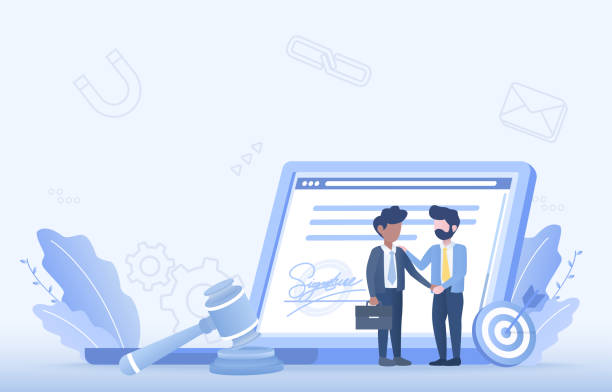Introduction and Importance of Personal Website Design in the Digital Age
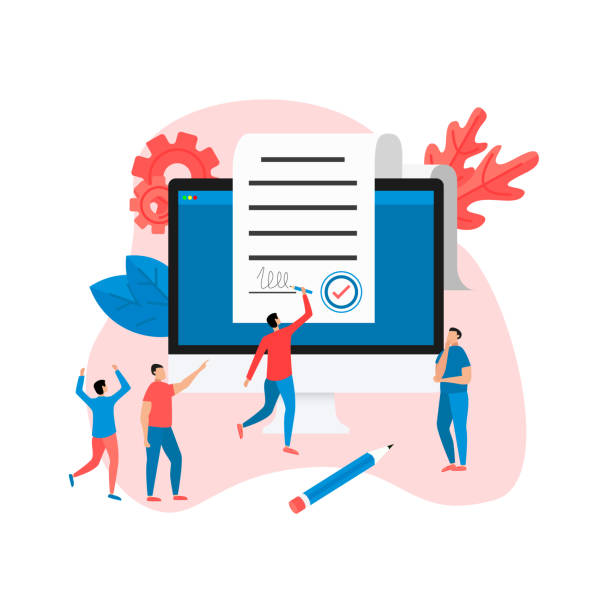
In today’s world, which is highly dependent on the internet, having a powerful online presence is more vital than ever.
Personal website design is not only an excellent #branding tool but also allows you to showcase your #skills, #projects, and #experiences in a professional and organized manner.
This is especially crucial for professionals, artists, writers, and even job seekers.
Your personal website acts like a digital business card that is always accessible, and its content is entirely under your control.
Unlike social networks whose rules and algorithms are constantly changing, your website is your dedicated platform where you can shape your digital identity without limitations.
This space allows you to tell your story, display your portfolios, and connect more deeply with your audience.
A strong personal website can open new doors to job opportunities, collaborations, and brand recognition.
In fact, many potential employers and clients review your online profile before any interaction, and your personal website can be your trump card.
Did you know that poor online store design can drive away up to 70% of your potential customers? Rasaweb transforms your sales with professional and user-friendly e-commerce website designs.
✅ Significant increase in sales and revenue
✅ Full optimization for search engines and mobile devices
⚡ [Get free consultation from Rasaweb]
Initial Planning Steps for Building a Personal Website

Before you start coding or using any platform, the planning phase for building your personal website is of great importance.
The first step is to define clear goals for the website.
Is your goal to display a portfolio, attract new clients, share specialized knowledge, or simply create a personal blog? Answering these questions will help you choose the appropriate content strategy and design.
The second step is to understand your target audience.
Who will visit your website? Professionals in your field, potential employers, or the general public? Understanding the needs and interests of your audience will influence the tone, style, and type of content on your website.
After that, we come to domain name selection.
Your domain name (URL) should be short, memorable, and related to your name or personal brand.
Registering a suitable domain is the first step towards a professional online presence.
Finally, you should consider choosing a reputable hosting service that makes your website accessible on the internet.
Good hosting should offer high speed, sufficient security, and adequate technical support to provide a better user experience.
These initial steps form the backbone of a successful personal website.
Choosing the Right Platform for Personal Website Design
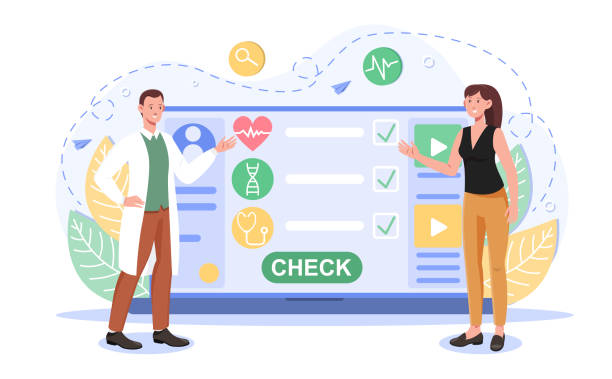
One of the crucial decisions in the personal website design process is choosing the right platform to build it.
This choice depends on your technical knowledge, budget, and website goals.
There are two main approaches: using Content Management Systems (CMS) like WordPress, or using Website Builders like Squarespace and Wix, or custom coding.
WordPress is a popular choice due to its high flexibility, numerous plugins, and large user community, making it ideal for those who want more control over their website.
In contrast, website builders, with their drag-and-drop user interface, make the website creation process easier for individuals without technical knowledge, but they may have limitations in terms of customization.
Custom coding is also suitable for those who need very specific and unique functionalities, but it requires programming knowledge and incurs more time and cost.
Choosing the correct platform can significantly impact your website’s development speed, maintenance costs, and future capabilities.
Below is a comparative table of some of the most popular platforms:
| Feature | WordPress (CMS) | Wix/Squarespace (Website Builder) | Custom Coding |
|---|---|---|---|
| Ease of Use | Medium to Advanced (requires learning) | Very Easy (drag and drop) | Very Difficult (requires programming knowledge) |
| Flexibility and Customization | Very High | Medium | Unlimited |
| Cost | Medium (hosting, theme, plugins) | Medium to High (monthly subscription) | High (development, maintenance) |
| Technical Control | Full | Limited | Full |
| Support | User and Developer Community | Direct Platform Support | Limited (to your development team) |
Principles of User Interface and User Experience Design in Personal Websites
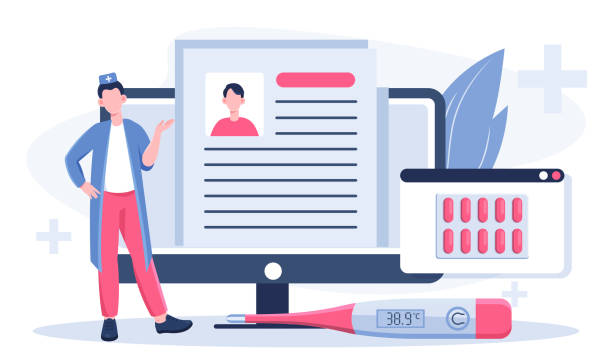
After choosing the platform, it’s time to focus on User Interface (UI) and User Experience (UX) design for your personal website.
These two are key factors that determine how visitors interact with your website and how they feel about it.
Good UI means visually appealing, consistent, and user-friendly design, which includes the selection of colors, fonts, images, and element layout.
The main goal is to create a professional and inviting appearance that reflects your personal identity.
On the other hand, UX refers to the overall user experience on your website.
This includes ease of navigation, page loading speed, website responsiveness across different devices (mobile, tablet, desktop), and content accessibility.
An excellent user experience means that visitors can easily find the information they are looking for and interact with your website.
Using clear menus, prominent Call to Action (CTA) buttons, and appropriate White Space in design all contribute to improving UX.
Remember that your personal website should be both visually pleasing and functionally efficient and user-friendly to encourage visitors to stay and interact more.
Does your current corporate website present a worthy image of your brand and attract new customers?
If not, transform this challenge into an opportunity with Rasaweb’s professional corporate website design services.
✅ Significantly improves your brand’s credibility and image.
✅ Paves the way for attracting new leads and customers.
⚡ For free and specialized consultation, contact Rasaweb now!
Producing Engaging and Targeted Content for a Personal Website
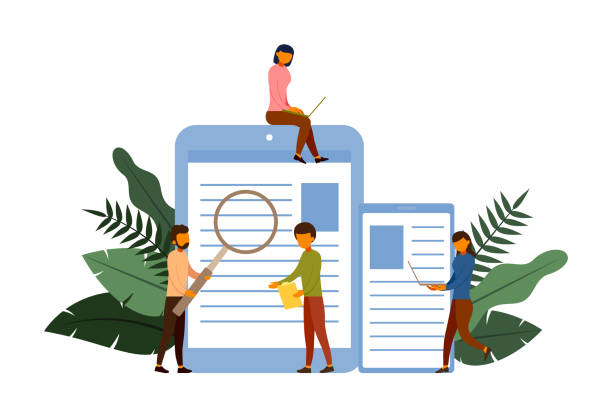
Content is the beating heart of any website, and this principle holds true for personal website design as well.
Producing engaging and targeted content helps you convey your message correctly and attract your target audience.
Personal website content usually includes various sections: an “About Me” page that narrates your story, experience, and goals; a “Portfolio” or “Works” section that showcases your best works; and a “Blog” section where you can publish specialized articles, personal experiences, or news related to your field.
When creating content, pay attention to SEO principles (Search Engine Optimization).
Using relevant keywords, proper text structuring with headings and subheadings (H1, H2, H3), and adding high-quality images and videos all help improve your website’s ranking in search results.
Also, try to create content that is not only informative but also thought-provoking and entertaining to encourage visitors to interact and return to your website.
High-quality and up-to-date content demonstrates your expertise and currency in your field.
Search Engine Optimization (SEO) for Personal Websites
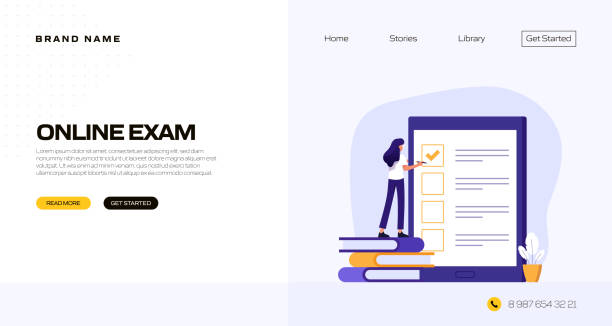
Having a beautiful and content-rich website is useless if no one can find it.
This is where Search Engine Optimization or SEO comes in.
SEO is a set of techniques that help improve your website’s ranking in Google and other search engine results.
For designing a personal website with an SEO approach, you first need to identify keywords related to your field of work or your name.
These keywords should be used in titles, meta descriptions, page content, and even image file names.
However, the important point is to use them naturally so that text readability is not reduced.
Website loading speed is another important factor in SEO.
Slow websites receive lower rankings and provide a poor user experience.
Optimizing images, using caching, and choosing fast hosting can help improve speed.
Also, your website must be fully Responsive, meaning it should display correctly on all devices, including mobile phones and tablets, as a large portion of searches are done via mobile, and Google gives higher scores to mobile-friendly websites.
Building appropriate internal links and acquiring links from reputable sites (backlinks) are also other important SEO strategies that increase your website’s credibility and help search engines better understand your website’s structure.
Adding Advanced and Interactive Features to a Personal Website
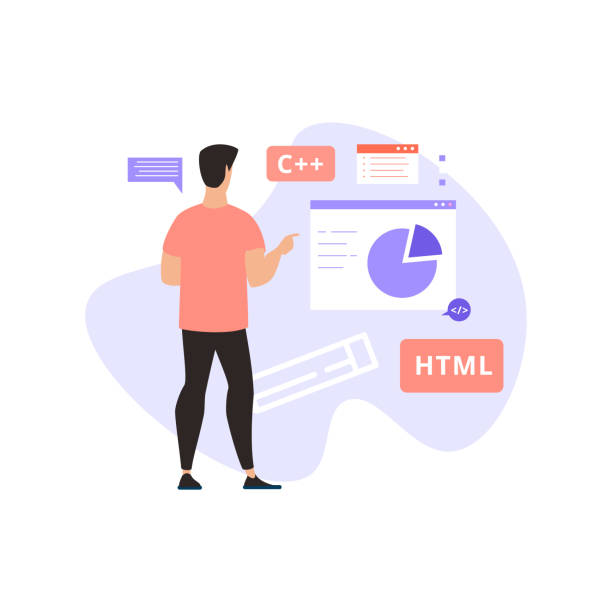
For your personal website design to be not only informative but also interactive and engaging, adding advanced features can make a difference.
One such feature is Contact Forms, which allow visitors to easily communicate with you.
These forms should be simple and efficient.
Integration with social networks is also very important; by placing links to your LinkedIn, Instagram, Twitter, or any other active platform profiles, you can strengthen your online presence and allow your audience to follow you on other channels.
Web Analytics tools like Google Analytics allow you to monitor website traffic, visitor behavior, and incoming sources.
This data is very valuable for improving your website’s performance and content strategy.
Adding a Newsletter Subscription feature is also an excellent way to collect visitor emails and maintain continuous communication with them.
These features not only increase your website’s value but also turn it into a powerful tool for interaction and personal marketing.
Below is a table of suggested features and their benefits:
| Feature | Benefit | Example (CMS Plugin) |
|---|---|---|
| Contact Form | Easy communication for visitors with you | Contact Form 7 (WordPress) |
| Social Media Integration | Increase followers and social media traffic | Social Media Share Buttons (WordPress) |
| Email Newsletter | Build audience list and direct marketing | Mailchimp for WordPress |
| Traffic Analytics Tools | Understand user behavior and improve website | Google Analytics (manual code or plugin) |
| Comments Section | Encourage interaction and discussion | Native WordPress Comments or Disqus |
Continuous Maintenance and Updates for a Personal Website
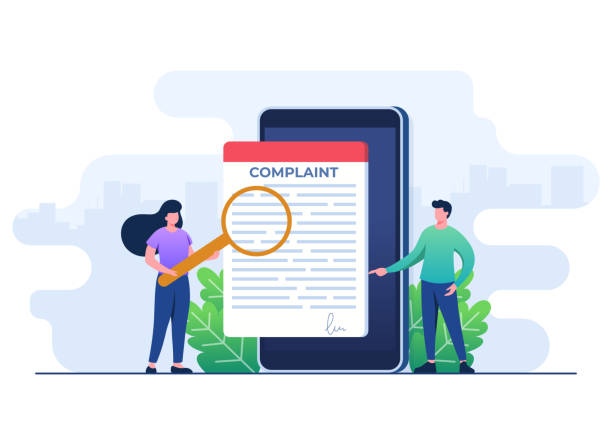
After completing the personal website design and launching it, your work is not over.
Continuous website maintenance and updates are vital for maintaining security, optimal performance, and its connection with the audience.
The first step is regular updates of the platform (like WordPress), theme, and plugins.
These updates usually include security enhancements and bug fixes that protect your website against cyber threats.
Regularly backing up your website is also a necessity.
In case of any problem or cyber-attack, the backup allows you to quickly restore your website.
Monitoring website performance, including checking loading speed, broken links, and 404 errors, is also important.
A slow website or one with many errors creates a bad user experience and can harm your SEO ranking.
Furthermore, your website’s content should also be continuously updated.
Adding new articles, updating old information, and showcasing recent projects not only keeps your website dynamic but also shows search engines that your website is active and valuable.
This approach helps you always maintain an active and powerful online presence.
Does your current e-commerce website design lead to losing customers and sales?
Rasaweb is your solution with modern and user-friendly e-commerce website designs!
✅ Significant increase in conversion rates and sales
✅ Strong branding and building customer trust
⚡ Get free e-commerce website design consultation from Rasaweb!
Case Study and Inspiration from Successful Personal Websites
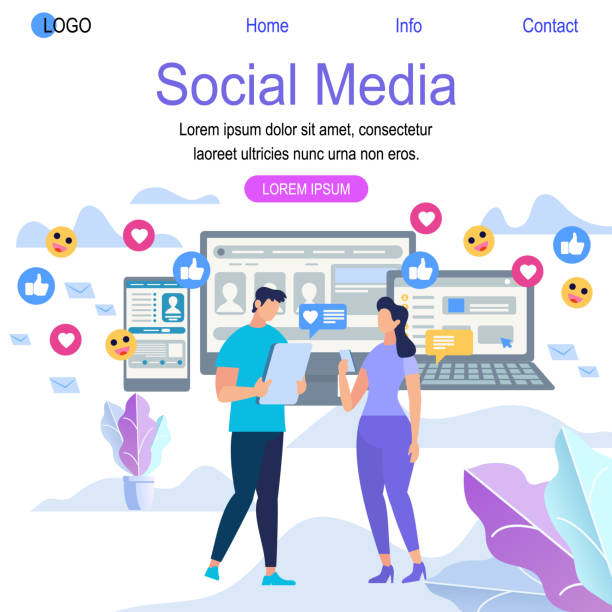
To succeed in designing your personal website, studying other successful personal websites and drawing inspiration from them can be very useful.
Successful websites usually share common characteristics: attractive and clean visual design, easy navigation, valuable and clear content, and clear Call to Action (CTA).
For example, the website of a successful graphic designer might feature a stunning visual portfolio with concise and useful descriptions for each project, or a writer’s website might include an active blog with in-depth and popular articles.
Pay attention to how these websites convey their personal identity through design and content.
Do they use specific colors? Is their writing tone special and unique? How do they showcase their portfolios to have the greatest impact? Examining these details will give you new ideas for improving your own website.
Also, paying attention to the “About Me” section on these websites can inspire you to write a compelling and engaging biography.
Inspiration does not mean copying, but rather understanding the principles of success and adapting them to your own style and needs to create a truly unique personal website.
The Future of Personal Website Design and Concluding Remarks
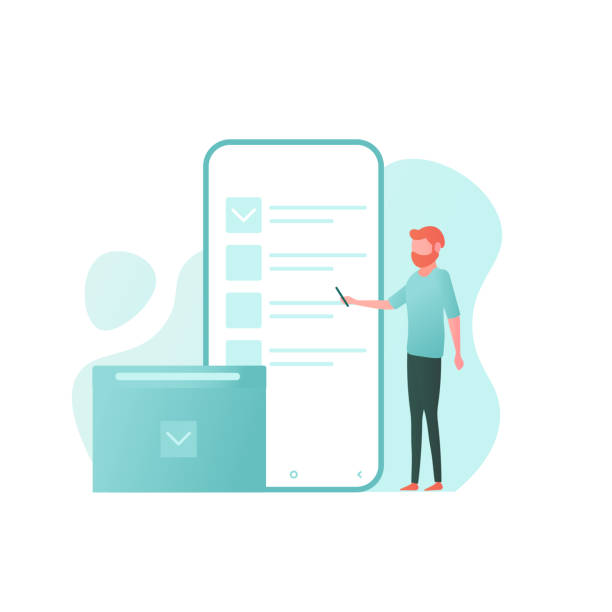
The future of personal website design is constantly evolving with the advent of new technologies and changes in user habits.
Trends such as the use of artificial intelligence for personalizing user experience, the increasing importance of voice search, and a greater focus on minimalist design and visual content are among the aspects to consider.
Personal websites in the future will likely move more towards interactive and dynamic platforms that allow for deeper and more personalized communication with the audience.
We might even see the emergence of tools that significantly simplify website design and maintenance with the help of AI, so that anyone can have a completely professional and unique website in minutes.
Ultimately, no matter which direction technology advances, the fundamental principle of a successful personal website will always remain constant: honesty, expertise, and providing value to the audience.
Your website is a reflection of you; therefore, dedicate the necessary time and energy to designing and maintaining it so that it best represents your personal brand online and opens doors to new opportunities for you.
With this approach, your personal website design will be not just a project, but a long-term investment in your path to success.
Frequently Asked Questions
| Question | Answer |
|---|---|
| 1. What is a personal website? | It is a website created by an individual to showcase personal information, resume, portfolio, interests, or blog. |
| 2. Why is having a personal website important? | It allows you to have a professional online presence, showcase your skills and experiences, connect with others, and manage your digital identity. |
| 3. What content should I include on my personal website? | It typically includes an About Me page, resume, portfolio, contact information, a blog (optional), and a gallery (if needed). |
| 4. How do I choose a suitable domain name for my personal website? | It’s best to use your first and last name (e.g., yourname.com). Choose a name that is short, memorable, and relevant to your identity. |
| 5. Do I need coding knowledge to design a personal website? | No, you can build your website without coding by using Content Management Systems (CMS) like WordPress or Website Builders like Wix or Squarespace. |
| 6. What is hosting, and what type of hosting is suitable for a personal website? | Hosting is the space where your website files are stored to be accessible to the public. For a personal website, shared hosting is usually sufficient and cost-effective. |
| 7. What is the importance of Responsive Design for a personal website? | Responsive design ensures that your website displays correctly and with an appropriate appearance on all devices (computer, tablet, mobile), which is crucial for an excellent user experience. |
| 8. How can I optimize my personal website for search engines (SEO)? | By using relevant keywords, producing quality content, optimizing images, having a proper URL structure, and acquiring backlinks, you can improve your website’s SEO. |
| 9. How do I keep my personal website updated? | Regularly add new content (such as blog posts or new portfolio items), keep contact information up to date, and ensure that the software and plugins used are updated. |
| 10. Can I monetize my personal website? | Yes, you can generate income by selling your products or services, advertising, affiliate marketing, or providing specialized consultations, depending on your content type and goal. |
And other services of Rasaweb Advertising Agency in the field of advertising
Smart Sales Automation: A fast and efficient solution for campaign management focusing on marketing automation.
Smart Digital Branding: Professional optimization for SEO ranking improvement using real data.
Smart Marketing Automation: A fast and efficient solution for user engagement focusing on SEO-driven content strategy.
Smart UI/UX: Professional optimization for user interaction using user experience customization.
Smart Customer Journey Mapping: A dedicated service for customer acquisition growth based on an SEO-driven content strategy.
And over a hundred other services in the field of internet advertising, advertising consultation, and organizational solutions
Internet Advertising | Advertising Strategy | Advertorials
Resources
Personal Website Design
What is Personal Branding?
Online Business Success
Guide to Proper Website Design
? With Rasaweb Afarin, specialists in secure website design and modern digital marketing strategies, precisely achieve your business goals.
📍 Tehran, Mirdamad Street, next to Bank Markazi, Kazerun Jonoubi Alley, Ramin Alley, No. 6

